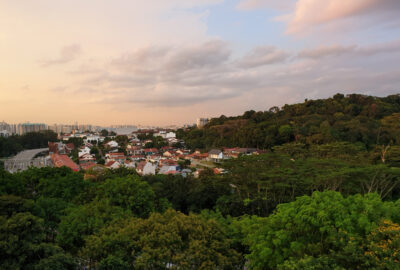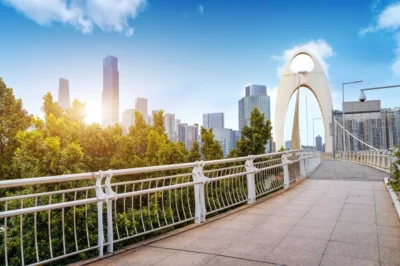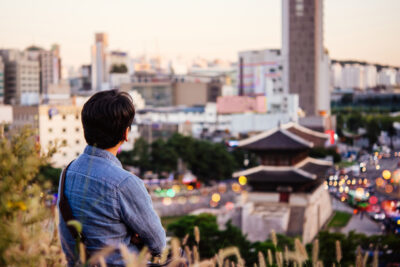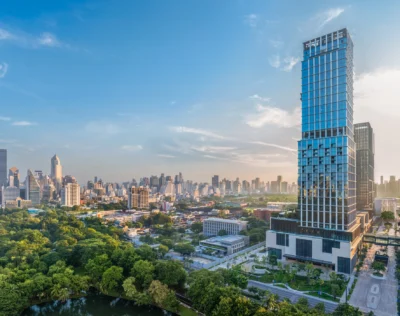Bangkok pledges to transform Ratchaprasong and Silom into sustainable districts
Real estate developers in the area vow to take responsibility
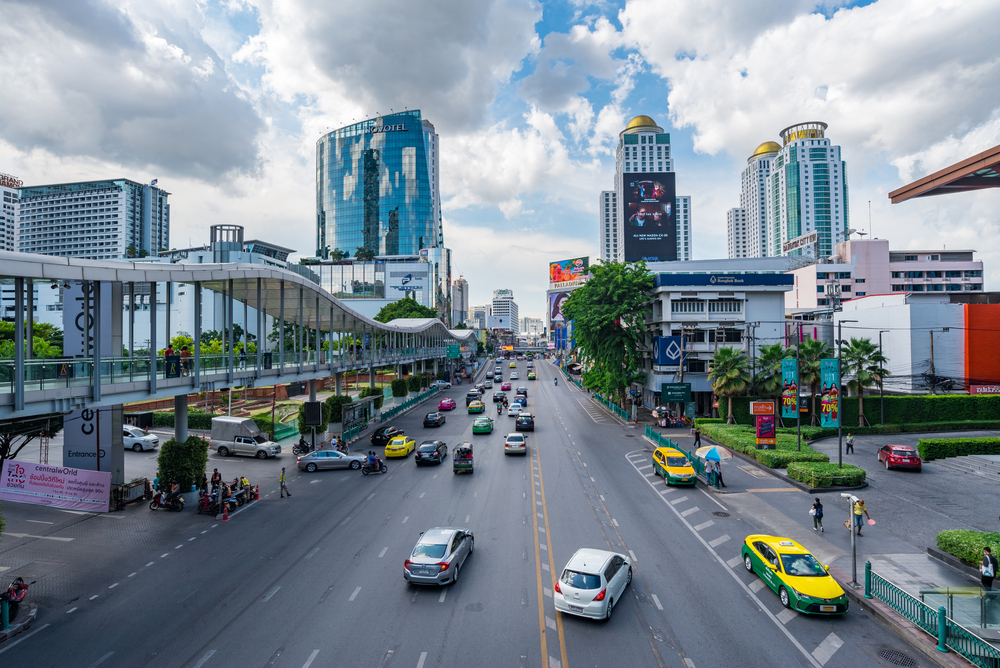
Armed with the knowledge of how crucial their role is in promoting truly liveable cities, leading real estate developers in Bangkok have committed to transforming Ratchaprasong and Silom into sustainable districts, according to Bangkok Post.
The President of the Ratchaprasong Square Trade Association Chai Srivikorn said that, along with the nine members of the association who belong in retail, hospitality, and commercial property sectors, they aim to convert the one square kilometre area of Ratchaprasong to follow the sustainable concept.
“The key question is sustainability,” said Srivikorn. “Building is one thing, but maintenance is a big issue. To be sustainable, there must be someone who is responsible. You must have members willing to share their knowledge and learn together.”
In the past two decades, the members of the association, who own 23 buildings in the district, have invested THB715 million (USD21.6 million) to construct a 1.15 kilometre BTS skywalk in the Ratchaprasong intersection that connects 18 buildings in the vicinity.
For the next phase of the project, they are working with the Bangkok Metropolitan Administration (BMA) to build the Ratchadamri Corridor, located on Ratchadamri Road in front of CentralWorld, Gaysorn Tower, and Gaysorn Village.
In Silom, Ornruedi Na-Ranong, the President of We Love Silom Association, said that they are replicating the Ratchaprasong district model to build a liveable street on Silom Raod, which stretches up to 2.5 km in length.
“Founder members formed the group in 2018 and worked with the BMA to launch pilot awareness activities in 2019. We set up the We Love Silom Association last year, with cooperation from other business sectors, to start the Silom communities development plan,” she said.
More: Thailand real estate undergoes changes from COVID and an ageing population
Members of the association, who are landlords of offices and mixed-use towers, securities companies, hospitals, insurance firms, and banks in the area, vow to develop Silom’s surroundings and landscape to be an easy, comfortable, safe, and liveable place to be in.
The partnership involves one representative from the BTS Skytrain, another from the Bangkok Mass Transit Authority, and 23 from the private and public sectors, 11 of which are members of the association.
Representatives from several government agencies, such as the BMA, the district office, the Traffic & Transport Department, the Drainage Department, the Civil Department, and the Public Works and Town & Country Planning Department will also take part in the project.
“Silom now has a green public space quantity of only 2.25 square metres per person, lower than the capital average of 6.9 sqm. The target is 10 sqm which is very challenging to achieve,” said Ornruedi.
Today, the accessibility to public spaces in Silom is only at 13 percent and the target is 60 percent.
“Silom Road has limited public space with an average pedestrian pavement width of only 2.5 metres,” she added. “Under the new design, we will encourage new buildings to open their own space for public use.”
They will persuade older developments to open six to eight metres for pedestrians following the privately-owned public space requirements.
More: Thailand’s resort real estate experience a strong wave of domestic demand
Cities in Bangkok currently only have a seven percent coverage area for pedestrians, which is a very limited right of way compared to 20 percent in Tokyo, 25 percent in Paris, 27 percent in Barcelona, 27 percent in New York, and 47 percent in Portland, Oregon. Experts recommend a 20 to 25 percent minimum coverage area.
“Government should give incentives like property tax or more floor area ratio to private property owners that dedicate their spaces for public use and green area,” said Ornruedi.
Through these projects, Thailand Property Award-winning developers L.P.N. Development PCL., Kasemsubsiri Co., Ltd., Habitat Group, Sisaran Group Co., Ltd, and Serene Surin Co., Ltd. — who are all taking commendable strides to build sustainable developments on their own — will have the support of public infrastructures.
Know of any award-worthy homes, condos, flats, or other real estate projects in Thailand? Nominate them for the 16th Thailand Property Awards on or before 27 August 2021. Simply visit asiapropertyawards.com/en/award/thailand-property-awards for more details.
Gynen Kyra Toriano, Digital Content Manager at PropertyGuru, wrote this article. For more information, email: [email protected].
Recommended
Meet the expert helping overseas investors crack Australia’s property market
Ivan Lam of property advisors Charter Keck Cramer helps clients navigate Australia’s complex real estate dynamics
6 spots to check out in Singapore’s Bukit list neighbourhood
The sought-after Singapore neighbourhood offers lifestyle amenities, green space, and new residential projects
Thailand’s real estate sector watches closely as the Shinawatras return to power
Time will tell if the return to power in Thailand of the Shinawatras will lift the country’s ailing real estate sector
China’s homebuying surge: Can new stimulus measures keep the market rally alive?
Stimulus measures have sparked a surge in homebuying activity around China, but many are sceptical the shift will endure


